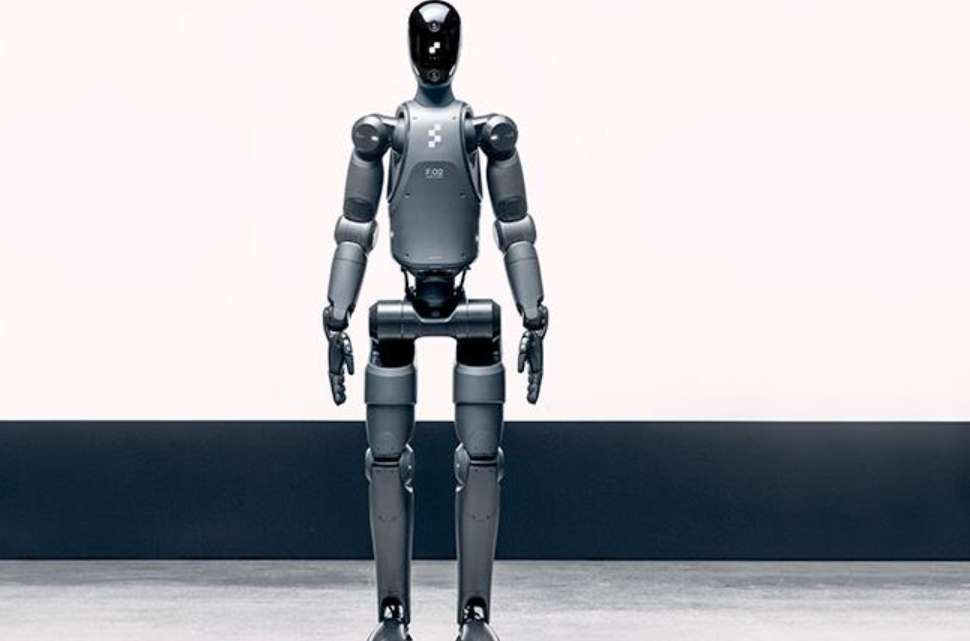Meta's Next Major Bet: Humanoid Robots
Advertisements
The realm of technology is witnessing a seismic shift as Meta, previously known for its significant investments in artificial intelligence and virtual reality, quietly ventures into the emerging field of humanoid robotics. This bold move indicates a broader trend in the technology sector, where giants like Apple and Google's DeepMind are exploring similar paths. The competition in the humanoid robot market is heating up, and Meta is strategically positioning itself to be a key player in this innovative space.
On Friday, reports emerged revealing that Meta is establishing a new team within its Reality Labs hardware division dedicated to the research and development of AI humanoid robots. This initiative will be helmed by Marc Whitten, a seasoned executive with a robust background in the tech and automotive industries, having previously led General Motors' Cruise autonomous vehicle unit as CEO. Notably, he has also held significant roles at Unity Software and Amazon.
Meta's strategic pivot towards humanoid robots is a reflection of the company's optimism regarding this burgeoning market. The initial focus of the humanoid robot initiative will revolve around developing domestic assistants that can perform everyday household tasks. However, the organization harbors more expansive aspirations, aiming to create a comprehensive ecosystem that integrates AI, sensors, and software.
In pursuit of this ambition, Meta has reportedly begun discussions with various robotics companies, including Unitree Robotics and Figure AI, exploring potential collaboration opportunities. Interestingly, Meta has made it clear that it does not currently plan to launch robot products under its own brand. While this means there won’t be a direct competition with products like Tesla's Optimus for now, the door remains open for future branded offerings.
On the same day of announcement, Meta's stock saw a noteworthy increase of approximately 1.4%, indicating investor confidence in this new venture. The focus on household assistive robots appears to be an area ripe for innovation and market penetration, offering a significant opportunity given the current lack of practical humanoid robots able to effectively manage household activities like folding laundry, serving drinks, or washing dishes—tasks consumers are keenly interested in automating.
In a memo, Meta's Chief Technology Officer Andrew Bosworth elaborated on the synergies being forged between the company's existing technological capabilities and the demands of robotics development. According to Bosworth, the company has poured substantial resources into the Reality Labs division, which specializes in virtual and augmented reality, alongside AI advancements that can enhance robotics technology. Key developments in areas such as hand tracking, low-bandwidth computation, and always-on sensors illustrate the potential intersection of these fields.

Meta executives believe that, despite advancements in hardware by existing humanoid robot companies, Meta holds unique advantages in AI and data collection through augmented and virtual reality devices that could significantly expedite the growth of this new sector. The ambition goes beyond merely releasing humanoid robots; Meta seeks to establish foundational technology for the robot market akin to how Google's Android operating system underpins the mobile industry.
Over recent years, Meta has invested billions into its Reality Labs hardware department and introduced various products like the Quest VR headset and the increasingly popular Ray-Ban smart glasses. In alignment with the new robotics initiative, Meta is planning to allocate $65 billion this year towards bolstering its AI infrastructure and robotics ventures. This initiative will include assembling a specialized team of about 100 engineers, led by Whitten, who will report directly to Bosworth.
The field of humanoid robotics is attracting considerable attention from major tech players. Recommendations from Tesla's CEO Elon Musk about the eventual consumer sale of the company's Optimus robot, projected to be priced around $30,000 and in limited production this year, highlight the competitive landscape. In addition, Boston Dynamics has rolled out products aimed at warehouse automation, marking its own entry into the robotic arena.
What distinguishes Meta’s approach from others is its target demographic; while many competitors aim at businesses and manufacturers, Meta is oriented towards penetrating the household market. Though the risk levels are generally lower with domestic bots operating in homes rather than on public roads, the distinct layouts of individual homes present unique challenges for humanoid robots.
Meta is also committed to developing a suite of safety tools essential for robotics, addressing potential hazards such as entrapments caused by a robot's limbs or other components. Issues like ensuring power safety when a robot runs out of battery or becomes interrupted mid-task are also on the agenda. Furthermore, Meta's strategy involves creating proprietary hardware alongside leveraging existing components and collaborating with current manufacturers to gradually build its own robotic offerings.
Despite just embarking on its humanoid robotics journey, Meta's foundational research team in artificial intelligence—the Fundamental AI Research (FAIR) lab—has already begun exploring robotic applications and has released relevant research papers. Coincidentally, Apple has also initiated the publication of AI research related to robotics, demonstrating a broader industry interest in this technology.
Industry insiders suggest that the widespread deployment of humanoid robots remains a few years away, and it may take Meta’s platform considerable time to support third-party products. Nonetheless, the sector is bound to become a focal point for Meta and the tech industry at large, suggesting that the race towards creating effective and functional humanoid robots is not just about market competition but could potentially define the future of household technology.